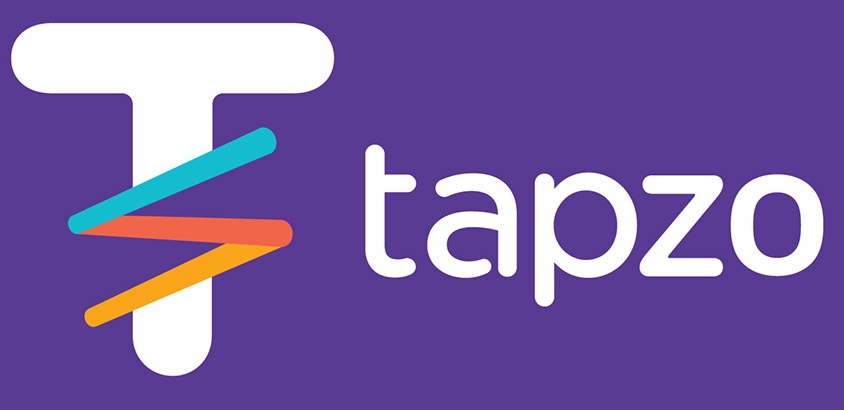
From a Full-Featured Application to One with Nothing - Tapzo
- E-Commerce & Online Auctions
A super app is a platform created by a corporation that provides a variety of services under one roof. For example, WeChat, which began as a messaging app and has since extended to include payments, transportation, shopping, restaurant ordering, and cab services, has evolved into a super app. A mall, which provides retail space to many brands and shops across businesses and sectors, is a physical world comparison of a super app.
Mike Lazaridis, the founder of BlackBerry, invented the term "super app" back in 2010. He described it as a "closed ecosystem of multiple apps" that people would use daily because they provide a "seamless, integrated, contextualized, and efficient experience."
Companies that offer a wide range of services and goods often combine their offers into a single super app. The concept first appeared in China and Southeast Asia, where internet companies such as WeChat, GoJek, and Grab took advantage of customer traffic on their platforms that had originally come for social media and communication needs by providing additional services to these customers, resulting in increased revenue realizations.
The advantages of the super app strategy include:
Product launches that are both faster and less risky: You already have a target audience and a plethora of data to assist you to build the correct offering and presenting it to the right people at the right time.
Lower product ownership and development costs: The majority of WeChat's'mini-apps' were produced through integration by enterprises looking to conduct business with WeChat's massive user base, rather than being developed in-house. To scale their products, the majority of "super applications" use a platform-based approach.
Reduced KYC costs: Ant Financials (Alipay) was able to cut their loan application and approval procedure to three minutes. The majority of KYC data is pulled from the customer's comprehensive social and financial profile. It's also easier to onboard new consumers for new services.
(Image: https://www.marketingweek.com/)
Ankur Singla launched Tapzo in 2010, and Vishal Pal Chaudhary and Avinash Vankadaru later joined the company. It began as Ashoka.com, an online customer feedback site, before rebranding as Helpchat, a chat-based personal assistant, in 2015. After that, it underwent another pivot in November 2016 and became Tapzo. Tapzo was an all-in-one app that offered over 35 services to users. It enjoyed a rating of over 4.5 on the app stores but several reasons led to the downfall of the app before it was acquired by Amazon.
Amazon acquired Tapzo in August 2018; however, it now looks that Amazon does not intend to keep the app in its current state. It will create doubts about Amazon's true intentions for the company. However, Amazon has since stated that it did not purchase Tapzo for its operations, which included everything from cab rides to food deliveries. That means that, despite the millions of downloads and 4.5 rating it boasted, Amazon recognized no value in the Tapzo app itself. The information Tapzo had on its consumers could be useful to Amazon. Tapzo had over 5 million downloads and would have gathered a lot of information on its customers' buying habits. This might be quite beneficial to Amazon Pay in terms of critical sector loans. Tapzo's acquisition had been viewed as a global giant acquiring a sustainable consumer firm established and built in India. However, given Tapzo's demise, it's evident that the app wasn't as successful as it had been portrayed.
Tapzo raised over $23 million in six rounds of investment. Tapzo received funding from several giants who saw the potential in the app and a contender to be ‘India’s Wechat’. With everything going in the way of Tapzo, how exactly did it fail?
(Image: https://www.timepasss.in/)
What Went Wrong:
The Ankur Singla-led company funded $16.5 million (Rs 100 crore) in 2015 on the promise of creating a customized chatbot. However, the corporation quickly realized that it was not worth the time and effort to investigate (owing to several reasons like scale, unit economics, etc.).
Tapzo had no clear idea what they wanted to do with their company, so they rebranded it three times, creating a sense of insecurity.
Tapzo's efforts showed a lack of study; they claimed to invest in and find various sectors without having sufficient understanding or research about the company.
Amazon bought Tapzo for the database it had built, not for the app's functionality. As soon as Amazon bought Tapzo, the company was shelved, and the founders were invited to monitor amazon pay India.
(Image: https://entrackr.com/)
Salient Learnings:
Focus, Clarity, and Consistency: They are the three most important aspects of every startup's success. Tapzo missed all three fundamentals without a doubt. It failed to create a consistent business case despite attracting significant financing.
Research is Crucial: Tapzo's story should serve as a warning to aspiring entrepreneurs who try to use terms and concepts like Artificial Intelligence (AI), Blockchain, and Machine Learning (ML) when interacting with investors, the media, and speaking at conferences without proper knowledge, market research, and a set plan.
Have a Clear Roadmap: Despite making three pivots, the company struggled to find the correct model each time. It emphasizes the notion that pivots can always backfire if they are not supported by a clear plan and executed properly.
